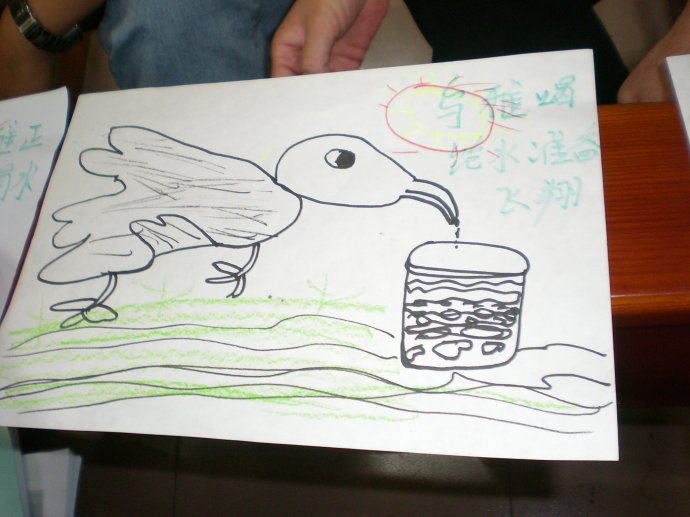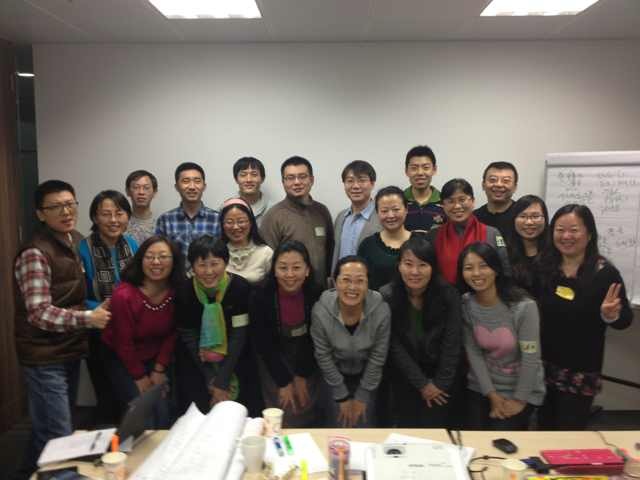以下是ICF规定的专业教练从业人士需遵守的道德准则,是我在2010年撰写一本教练课程手册时翻译的,当时感觉收获颇多。此文不仅适合专业教练研读,同时也适合教练服务的需要方在选择专业教练时做为参考。推荐大家仔细阅读。
ICF Code of Ethics
ICF道德准则
(翻译:陈绰)
Part One: Definition of Coaching 第一部分:教练的定义
Section 1: Definitions 第一节:定义
- Coaching: Coaching is partnering with clients in a thought-provoking and creative process that inspires them to maximize their personal and professional potential. 教练:教练是一种与客户的伙伴关系,在这种关系中,教练通过一个激发思考、创造性的过程,去激励客户最大化地挖掘其个人及职业上的潜能。
- A professional coaching relationship: A professional coaching relationship exists when coaching includes a business agreement or contract that defines the responsibilities of each party. 职业教练关系:当教练关系中建立了用以确定各方责任的商业协议或合同时,职业教练关系就成立了。
- An ICF Professional Coach: An ICF Professional Coach also agrees to practice the ICF Professional Core Competencies and pledges accountability to the ICF Code of Ethics. ICF职业教练:ICF的职业教练同时还同意达到ICF核心职业能力的标准,并宣誓遵守ICF道德准则的要求。
In order to clarify roles in the coaching relationship, it is often necessary to distinguish between the client and the sponsor. In most cases, the client and sponsor are the same person and therefore jointly referred to as the client. For purposes of identification, however, the International Coach Federation defines these roles as follows: 为了明确教练关系中的角色,经常要对客户和发起人进行区分。在大数情况下,客户和发起人是同一个人,那么就可以一并称为客户。但是,为了区分清楚,ICF对这些角色定义如下:
- Client: The “client” is the person(s) being coached. 客户:“客户”指的是被教练者。
- Sponsor: The “sponsor” is the entity (including its representatives) paying for and/or arranging for coaching services to be provided. “发起人”指的是安排教练服务以及/或者为此付费的机构(包括其代表处)。
In all cases, coaching engagement contracts or agreements should clearly establish the rights, roles, and responsibilities for both the client and sponsor if they are not the same persons. 在任何情况下,如果客户及发起人不是同一人的话,教练合约或协议应该清楚地规定双方的权利、角色、以及责任。
Part Two: The ICF Standards of Ethical Conduct 第二部分:ICF道德行为标准
Preamble: ICF Professional Coaches aspire to conduct themselves in a manner that reflects positively upon the coaching profession; are respectful of different approaches to coaching; and recognize that they are also bound by applicable laws and regulations. 导言:ICF职业教练立志在行为上要体现出教练的职业精神;尊重不同的教练方法;并且明白他们同时还有义务遵守适用的法律和法规。
Section 1: Professional Conduct At Large 第一节:通用行为准则
As a coach: 作为一名教练:
1) I will not knowingly make any public statement that is untrue or misleading about what I offer as a coach, or make false claims in any written documents relating to the coaching profession or my credentials or the ICF. 1)我不会有意地做出任何不真实的或具有误导性的关于我以教练身份所提供的服务的公开声明,或者做出任何关于教练职业、我的认证资质或者ICF的虚假的书面声明。
2) I will accurately identify my coaching qualifications, expertise, experience, certifications and ICF Credentials. 2)我将准确地说明我的教练资格、专业知识和经验、证书和ICF的认证。
3) I will recognize and honor the efforts and contributions of others and not misrepresent them as my own. I understand that violating this standard may leave me subject to legal remedy by a third party. 3)我将承认、尊重、并且不会盗用他人的努力和贡献。我理解如果违反这项要求可能会导致第三方追究我的法律赔偿责任。
4) I will, at all times, strive to recognize personal issues that may impair, conflict, or interfere with my coaching performance or my professional coaching relationships. Whenever the facts and circumstances necessitate, I will promptly seek professional assistance and determine the action to be taken, including whether it is appropriate to suspend or terminate my coaching relationship(s). 4)我将时刻努力去发现可能会削弱、抵触、妨碍我的教练效果、或者我的职业教练关系的个人问题。在必要的情况下,我将迅速寻求专业帮助并确定要采取的行动,包括决定是否应该暂停或者终止我的教练关系。
5) I will conduct myself in accordance with the ICF Code of Ethics in all coach training, coach mentoring, and coach supervisory activities. 5)我将在所有教练培训、教练指导、以及教练管理活动中遵守ICF道德准则之要求。
6) I will conduct and report research with competence, honesty, and within recognized scientific standards and applicable subject guidelines. My research will be carried out with the necessary consent and approval of those involved, and with an approach that will protect participants from any potential harm. All research efforts will be performed in a manner that complies with all the applicable laws of the country in which the research is conducted. 6)我将按照公认的科学标准、在适用的题目范围内,运用我的能力、本着诚实的态度进行研究、并形成研究报告。我的研究将会得到所涉及到的相关人员的同意和认可,并且将以一种保护参与者不会遭受任何伤害的方式进行。所有研究行为将符合所在国家的所有适用法律。
7) I will maintain, store, and dispose of any records created during my coaching business in a manner that promotes confidentiality, security, and privacy, and complies with any applicable laws and agreements. 7)我将以一种保密的、安全的、保护隐私的,并遵守任何适用的法律法规的方式,维护、存贮、处置在教练过程中产生的记录。
8) I will use ICF member contact information (e-mail addresses, telephone numbers, etc.) only in the manner and to the extent authorized by the ICF. 8)我将只按照ICF所许可的方式和程度使用ICF成员的联系信息(如电邮地址,电话号码等)。
Section 2: Conflicts of Interest 第二节:利益冲突
As a coach: 作为一名教练:
9) I will seek to avoid conflicts of interest and potential conflicts of interest and openly disclose any such conflicts. I will offer to remove myself when such a conflict arises. 9)我将努力避免利益冲突以及潜在的利益冲突,并且将毫不隐瞒地公开这些冲突。当出现冲突时,我将主动让自己避让。
10) I will disclose to my client and his or her sponsor all anticipated compensation from third parties that I may pay or receive for referrals of that client. 10)我将向客户及发起人公开因为推荐该客户,我向第三方支付或者我从第三方处得到的预期报酬。
11) I will only barter for services, goods or other non-monetary remuneration when it will not impair the coaching relationship. 11)只有在不会削弱教练关系的情况下,我才会接受诸如服务、物品或者其他非货币形式的报酬。
12) I will not knowingly take any personal, professional, or monetary advantage or benefit of the coach-client relationship, except by a form of compensation as agreed in the agreement or contract. 12)除了协议或合同中规定的报酬形式外,我不会有意地从教练与客户的关系中获取任何私人的、职业上的、或者金钱上的好处和利益。
Section 3: Professional Conduct with Clients 第三节:与客户的行为准则
As a coach: 作为一名教练:
13) I will not knowingly mislead or make false claims about what my client or sponsor will receive from the coaching process or from me as the coach. 13)关于我的客户和发起人将从教练过程中或者从作为教练的我这里可以获得的益处,我将不会有意地误导或者做出虚假陈述。
14) I will not give my prospective clients or sponsors information or advice I know or believe to be misleading or false. 12)我将不会向潜在客户和发起人提供我知道或者认为具有误导性或者虚假的信息或建议。
15) I will have clear agreements or contracts with my clients and sponsor(s). I will honor all agreements or contracts made in the context of professional coaching relationships. 15)我将与我的客户及发起人签订清楚的协议或合同。我将尊重所有在职业教练关系下签订的协议和合同。
16) I will carefully explain and strive to ensure that, prior to or at the initial meeting, my coaching client and sponsor(s) understand the nature of coaching, the nature and limits of confidentiality, financial arrangements, and any other terms of the coaching agreement or contract. 16)第一次见面前或见面时,我将仔细地解释并努力确保我所教练的客户及发起人理解教练的性质、保密的性质和局限性、财务安排、以及教练协议及合同的其他条款。
17) I will be responsible for setting clear, appropriate, and culturally sensitive boundaries that govern any physical contact I may have with my clients or sponsors. 17)我有责任在与客户或者发起人之间的身体接触方面设定清晰的、恰当的、符合文化习惯的界限。
18) I will not become sexually intimate with any of my current clients or sponsors. 18)我将不会与我的任何教练关系中的客户或者发起人产生性亲密关系。
19) I will respect the client’s right to terminate the coaching relationship at any point during the process, subject to the provisions of the agreement or contract. I will be alert to indications that the client is no longer benefiting from our coaching relationship. 19)我将尊重客户按照协议或合同的规定,随时终止教练关系的权利。我将留意客户不再从教练关系中受益的迹象。
20) I will encourage the client or sponsor to make a change if I believe the client or sponsor would be better served by another coach or by another resource. 20)如果我认为其他教练或者其他资源会给客户或发起人提供更好的服务,我将鼓励客户或者发起人进行更换。
21) I will suggest my client seek the services of other professionals when deemed necessary or appropriate. 21)当我认为必要或者合适时,我将建议客户寻求其他职业人士的服务。
Section 4: Confidentiality/Privacy 第四节:保密/隐私
As a coach: 作为一名教练:
22) I will maintain the strictest levels of confidentiality with all client and sponsor information. I will have a clear agreement or contract before releasing information to another person, unless required by law. 22)我将会对所有客户及发起人的信息进行最严格的保密。除非是法律要求,否则在向其他人泄露信息之前,我会签订明确的协议或合同。
23) I will have a clear agreement upon how coaching information will be exchanged among coach, client, and sponsor. 23)关于如何在教练、客户及发起人之间交换教练信息,我将签订明确的协议。
24) When acting as a trainer of student coaches, I will clarify confidentiality policies with the students. 24)当给教练学员们做培训师时,我将向学生阐明保密政策。
25) I will have associated coaches and other persons whom I manage in service of my clients and their sponsors in a paid or volunteer capacity make clear agreements or contracts to adhere to the ICF Code of Ethics Part 2, Section 4: Confidentiality/Privacy standards and the entire ICF Code of Ethics to the extent applicable. 25)我将让我的助教及其他为我的客户及发起人服务的人员(付酬的或者义务的)签订明确的协议或合同,遵守ICF道德准则第二部分第4节之保密/隐私的规定以及整个ICF道德准则中适用的部分。
Part Three: The ICF Pledge of Ethics 第三部分:ICF道德宣誓
As an ICF Professional Coach, I acknowledge and agree to honor my ethical and legal obligations to my coaching clients and sponsors, colleagues, and to the public at large. I pledge to comply with the ICF Code of Ethics, and to practice these standards with those whom I coach. 作为一名ICF职业教练,我承认并且同意履行我对我所教练的客户以及发起人、同事、以及其他普通大众在道德及法律上的义务。我发誓遵守ICF道德准则,并向我所教练的人实践这些准则。
If I breach this Pledge of Ethics or any part of the ICF Code of Ethics, I agree that the ICF in its sole discretion may hold me accountable for so doing. I further agree that my accountability to the ICF for any breach may include sanctions, such as loss of my ICF membership and/or my ICF Credentials. 如果我违反了这份道德宣誓或者ICF道德准则中的任何部分,我同意ICF有权决定让我承担责任。我还同意我如有任何违反行为,我对ICF的责任可以包括制裁,例如取消我ICF的会员资格,及/或取消我的ICF教练资格证书。
Approved by the Ethics and Standards Committee on October 30, 2008. 由道德及标准委员会于2008年10月30日批准。
Approved by the ICF Board of Directors on December 18, 2008. 由ICF董事会于2008年12月18日批准。


